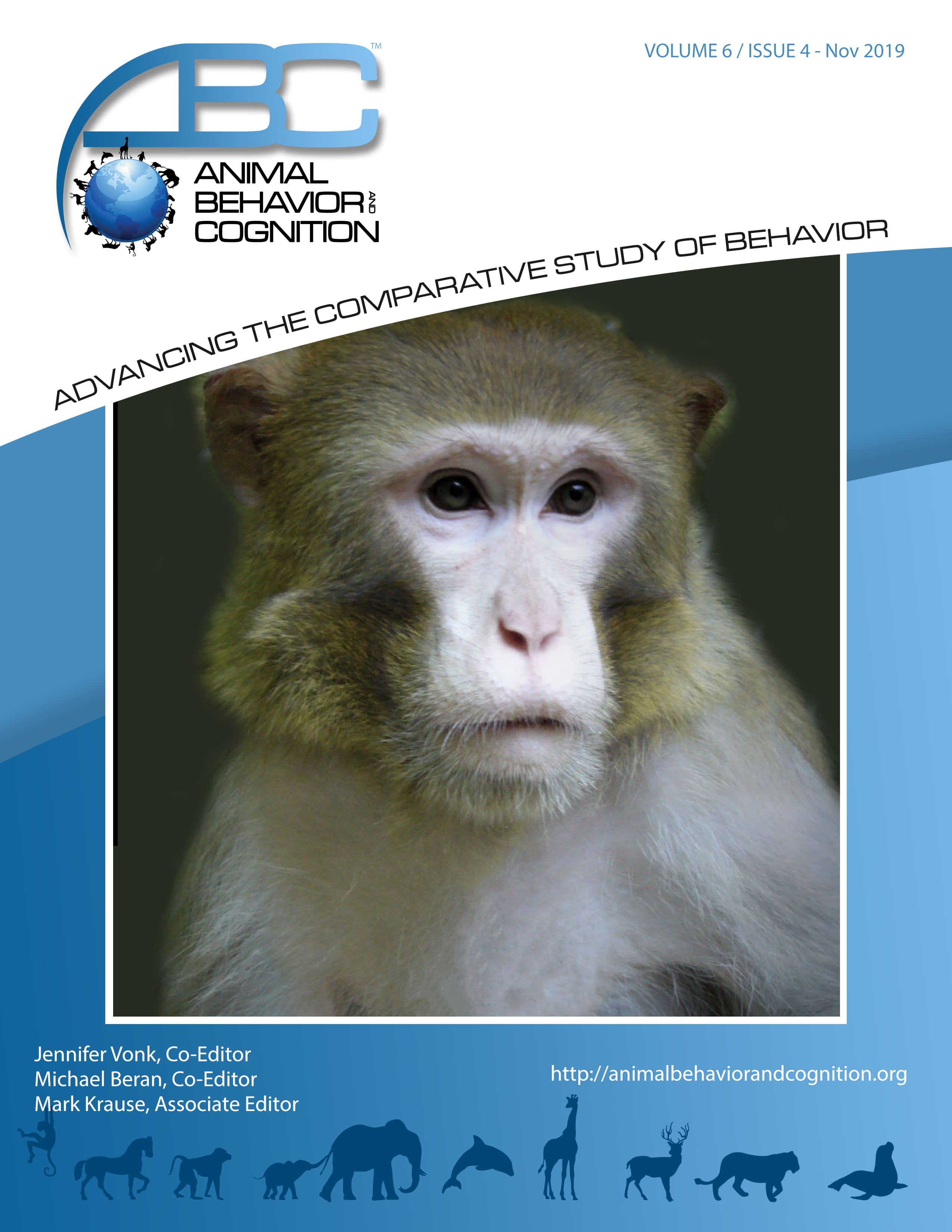Vol 6, Issue 4, November 2019
Using Natural Ecology to Predict Higher Cognition in Human and Non-human Primates
Citation
Schwartz, B. L. (2019). Using natural ecology to predict higher cognition in human and non-human primates. Animal Behavior and Cognition, 6(4), 344-354. https://doi.org/10.26451/abc.06.04.13.2019
Abstract
Many critical aspects of contemporary human cognitive functionality (e.g., reading, fixing a car) evolved historically in a time frame that biological natural selection cannot account for. Because of this, the best way to understand the factors that may have led to human cognition evolution is to look at cognitive processes in non-human primates. I argue here that comparative approaches are successful in informing us about human cognitive evolution. Furthermore, making predictions based on natural ecology will allow us to explore comparative cognition in a manner that avoids the trend to determine if non-human primates simply can do what we do. Instead, we can track different patterns of natural selection by examining how cognition differs across specific ecological niches. In this essay, I write of the excellent work applying foraging ecology to spatial memory. I then consider the ways in which metacognition has been addressed in humans and non-human primates and apply the logic of looking for differences based on ecology. Finally, I consider one paradigm that have been used to address the evolution of cognition in humans – survival processing – and discuss how it maps to non-human primates.
Keywords
Spatial memory, Metacognition, Natural selection, Survival processing, Non-human primates
